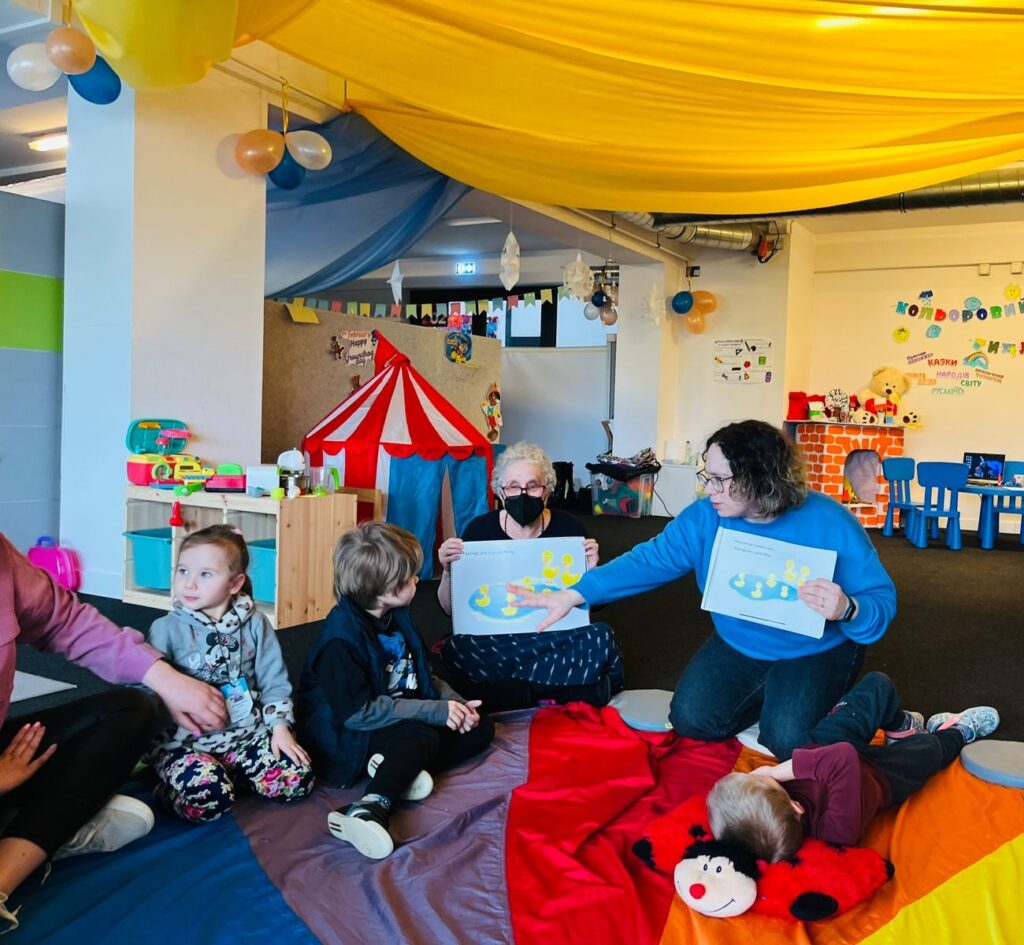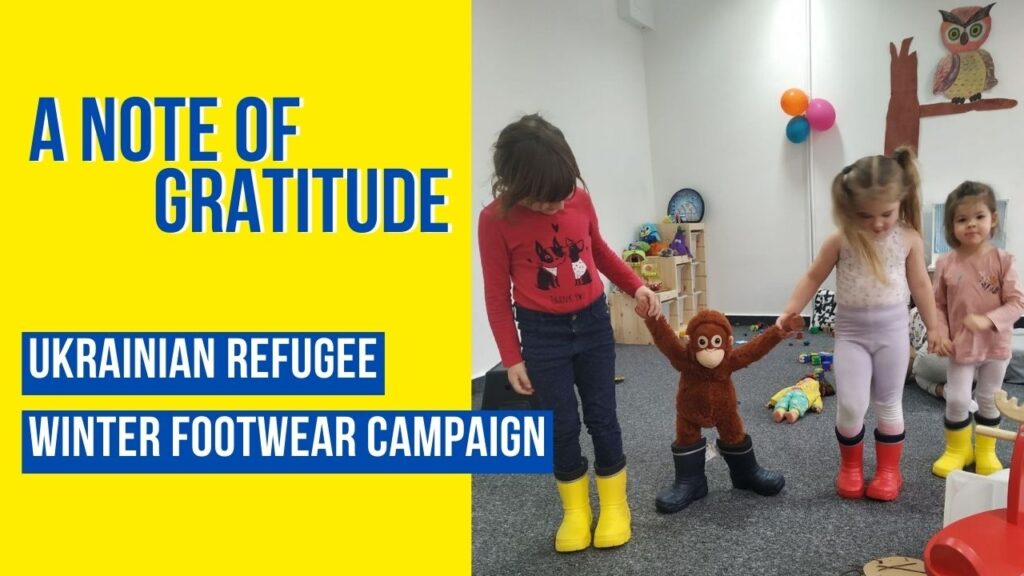Educational Book Fosters Parental Emotional Support to Traumatized Young Children
Dr. Claudia Kohner is contributing to building a response to the trauma that Ukrainian children and their mothers and grandmothers are coping with in Poland. Her approach may help adults in understanding the feelings of preverbal children.

Circle Time in classroom at Fundacja Rozwoju Dzieci’s SPYNKA child care. Psychologist Polina Shadrina presenting a page in a book that shows ducklings with different feelings in the presence of adult ducks. In English, the words on the page are: Feelings are a good thing.
DR. KOHNER’S REPORT ON HER WINTER 2023 TRIP TO POLAND FOLLOWS
I traveled to Poland with a large-format version of the educational book “IntroDUCKtion to Very, Very Big Feelings” with the hope that there would be opportunity to sit on the floor and show the book to young children at one of the SPYNKA child centers. Beit Polska’s Janusz Korczak Childcare Fund participates in funding the vital work of these centers.
Way beyond my expectations, Jonathan Mills arranged to have the main text of the book translated into Ukrainian for presentation by Ukrainian psychologist Polina Shadrina in an organized circle time in a beautiful classroom for young children in a shelter for Ukrainians living in Poland. As can be seen especially in the accompanying video, Polina Shadrina was a very dynamic presenter who engaged the children.
The purpose of the “IntroDUCKtion” is to communicate to young children (and the adults who care for young children) that:
Feelings are universal and good.
When our feelings are overwhelming, we need other people to help us.
Parents and others who take care of young children can help the children in these three ways:
Comfort them
Play with them
Put their feelings into words
This educational approach is designed to help adults help young children integrate their emotions rather than push them away. Integrating emotional experience can be helpful in healing from trauma.
Circle Time at Fundacja Rozwoju Dzieci’s SPYNKA child care. Psychologist Polina Shadrina providing a dynamic, student-engaging presentation of a page in the book that shows an angry, red-faced duckling.
When in conversation with adults during my visit to Poland, I was struck by the frequency with which people talked about trauma. The Polish people have endured generations of trauma. I hope that this sensitivity to the impact of trauma, and the importance of engaging with it and talking about it, will contribute to ongoing efforts to meet the emotional needs of the Ukrainian families who have been welcomed to Poland as a result of the Russian War against Ukraine.
DONATE TO BEIT POLSKA’S GENERAL FUND HERE.
VIEW THE CHILDCARE VIDEO ON OUR YOUTUBE CHANNEL HERE.
MORE VIDEOS RELATING TO OUR UKRAINIAN RELIEF ARE HERE.
FOR BACKGROUND INFO ABOUT BEIT POLSKA’S JANUSZ KORCZAK CHILD CARE FUND AND SPYNKA, CLICK HERE AND HERE.
**Spynka in Polish means a “clip” it is a device that holds things together; in Ukrainian Spnyka is a back support.


















Dr. Kohner has made a powerful contribution to the emotional well-being of young children.
It’s so wonderful that Dr. Kohner took the time and effort to pass along her knowledge to these traumatized children and their parents. Would like to see more video or follow-up on how the children are doing.